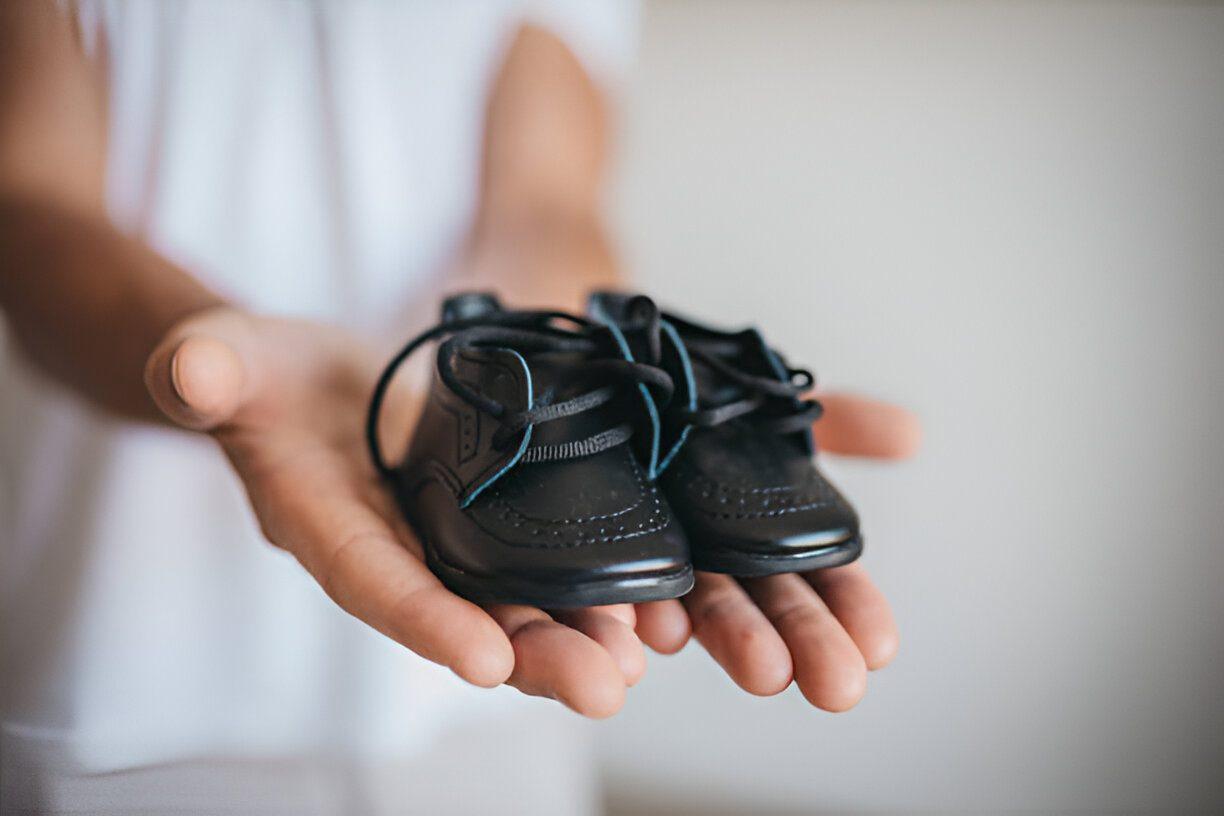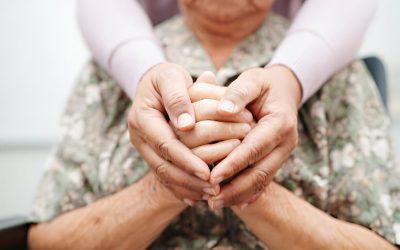When Hope Slips Away, Yet Few Speak of It
Miscarriage—often whispered about, seldom openly discussed—touches an estimated one in four pregnancies, yet the emotional aftermath remains shrouded in silence. Parents-to-be don’t just lose a pregnancy; they lose the future they envisioned. This article shines a light on the layered grief of miscarriage, exploring its physical, emotional, and cultural dimensions, and offering pathways toward empathy, recognition, and community support.
“Losing my baby at ten weeks felt like my world stopped, but no one around me seemed to notice. I needed permission to grieve
—even for a life so brief.”
When Loss Remains Unseen

A Quiet Vacancy
Miscarriage—often whispered about, seldom openly discussed—affects approximately one in four pregnancies, with over 80% occurring in the first trimester. Despite its prevalence, its emotional, psychological, and physical toll remains shrouded in silence. This “silent grief” not only reflects the profound personal loss many women and couples experience but also reveals the societal stigma and lack of acknowledgment surrounding this common, yet devastating, event.
The Layers of Loss
More Than a Pregnancy
Miscarriage is not simply the loss of a pregnancy; it is the loss of a future. Parents-to-be often envision life with their child, forming dreams and plans. When a miscarriage occurs, those aspirations are abruptly taken away, leaving a void that is rarely acknowledged.
Disenfranchised Grief
The grief of miscarriage is often classified as disenfranchised grief—a loss that society does not fully validate. Without rituals like funerals or public acknowledgment, individuals may feel isolated in their mourning. Studies show that this lack of recognition exacerbates feelings of loneliness and internalized pain, deepening the emotional toll.
The Physical Aftermath
A Silent Trauma
Physically, miscarriage is an invasive and often traumatic experience. Women describe it as an abrupt reminder of their body’s inability to sustain life, often accompanied by feelings of guilt, shame, and inadequacy. The medical community’s frequently clinical approach to miscarriage can compound this pain, leaving women to navigate their physical recovery with minimal emotional support.
Unacknowledged Pain
The physical and emotional pain of miscarriage often go hand in hand. Yet, the lack of guidance for recovery—beyond the immediate medical intervention—leaves many women feeling abandoned in their grief. This gap in care amplifies the sense of isolation, as the body heals without the emotional wounds being addressed.
Psychological Consequences
A Lingering Grief
The psychological effects of miscarriage often extend far beyond the event itself. Grief, depression, anxiety, and even post-traumatic stress disorder (PTSD) are not uncommon. Without tangible rituals to mark the loss or societal acknowledgment of the grief, many struggle to find closure.
Pregnancy After Loss Anxiety
Subsequent pregnancies are often marked by heightened fear and anxiety, a phenomenon known as pregnancy after loss anxiety. The joy of new life can be overshadowed by the lingering trauma of previous loss, creating a delicate emotional balance for the parents-to-be.
“Even the smallest life holds an immeasurable space in our hearts.” — Evelyn S.
The Cultural Silence
Stigma and Secrecy
Cultural narratives surrounding miscarriage are rooted in silence. Historical stigmas, combined with societal norms encouraging secrecy around early pregnancy, deprive women and couples of critical support during a vulnerable time. The pressure to keep pregnancy private until after the first trimester perpetuates the isolation when a loss occurs.
Internalized Silence
The silence around miscarriage isn’t just external; it becomes internalized. Women may question their right to grieve, especially if the pregnancy was in its early stages. The clinical language often used to describe miscarriage—“chemical pregnancy” or “spontaneous abortion”—can further minimize the emotional significance of the loss, complicating the grieving process.
Supporting Those Who Grieve
Validation and Understanding
The most crucial aspect of supporting someone through miscarriage is validating their loss, regardless of how early it occurred. Words of acknowledgment, listening without judgment, and offering genuine empathy are invaluable.
Creating Safe Spaces
Encouraging open conversation and connecting individuals to support networks can help break the cycle of silent grief. Organizations such as the March of Dimes or local support groups provide safe spaces for sharing stories, fostering community, and normalizing the mourning process.
Practical Support
Small gestures, such as offering help with daily tasks, sending a heartfelt note, or simply being present, can make a significant difference in the healing process.
Things To Try This Week!
- Gentle Acknowledgment: If you know someone grieving a miscarriage, offer a simple, sincere statement: “I’m so sorry for your loss. I’m here if you need to talk.”
- Memorial Ritual: Light a candle or create a small memento to honor the lost pregnancy—an act of remembrance for what might have been.
- Community Connection: Look for local or online miscarriage support groups. Sharing stories can provide solace and remind you that you’re not alone in your grief.
Conclusion
The grief of miscarriage, though often silent, is a profound human experience deserving of acknowledgment and empathy. By breaking the societal silence and creating spaces for open dialogue, we can begin to dismantle the stigma surrounding this common loss. In doing so, we allow those affected to grieve without shame, offering a path toward healing through recognition, community, and understanding. Every loss, no matter how invisible, deserves to be met with compassion, ensuring that no one has to grieve in isolation.
Recognizing the silent grief of miscarriage allows space for healing—both individually and within our communities.
By offering empathy and acknowledgment, we help transform isolation into understanding. Our All Things Cherish collection features comforting keepsakes, thoughtful prompts, and supportive resources aimed at honoring every kind of loss, including those so quietly endured. May you find gentle strength in knowing every story of love and loss deserves to be cherished.
Honoring What Was, Holding Hope for What Will Be
Silent grief doesn’t have to remain silent. In our All Things Cherish collection, discover heartfelt gestures and guiding words that support the delicate process of miscarried dreams. May these caring tools help both you and your loved ones find validation, empathy, and a gentle path toward healing.
More Reflections, More Growth
Loss is complex, and the road to healing is different for everyone. These reflections offer insight, support, and guidance as you navigate this journey.
Relearning Life: Healing After Losing a Spouse
Healing after losing a spouse is a deeply personal journey. This guide offers compassionate strategies for navigating grief, honoring their memory, and rediscovering yourself.
When Parenthood Dreams Stall: Navigating Infertility with Compassion
Infertility is a deeply personal journey that affects physical, emotional, and relational well-being. Discover how compassion—both self-directed and from others—can transform this experience into one of resilience and connection.
When Hope Falls Silent: Finding Support After Pregnancy Loss
Pregnancy loss is a deeply personal experience, often shrouded in silence. Learn how to find support—from medical care to community connections—and navigate the complex grief with compassion and hope.
Where Grief Finds No Words: Honoring Unspoken Losses
Unspoken losses—miscarriage, estrangement, unrealized dreams—often remain hidden, leaving those affected isolated in their grief. Learn how to honor these silent struggles, validate their impact, and embrace healing.
Grieving Financial Loss and Finding Stability: Rebuilding Hope and Confidence
Financial loss affects more than your finances—it shakes your sense of identity and security. This guide explores how to process the grief, take practical recovery steps, and find emotional resilience during challenging times.
The Emotional Toll of Separation
Separation is more than a life change—it’s an emotional journey filled with grief, self-discovery, and transformation. Learn strategies to navigate this difficult transition and build a hopeful new chapter.
Finding Your Next Chapter: Rediscovering Yourself After a Life Change
Life changes can redefine who you are, challenging your sense of identity and direction. Discover how to navigate transitions, embrace growth, and rediscover your true self with intention and resilience.
Standing Beside Their Struggle: Supporting a Loved One Through Health Challenges
Supporting a loved one through health challenges is an act of love and resilience. Discover practical strategies and emotional tools to offer meaningful care while protecting your well-being.
Finding Hope After Losing a Child
Finding hope after the loss of a child is a delicate journey. This guide offers compassionate steps to honor their memory and navigate grief toward moments of light.
Explore Journeys of Healing and Solace:
Discover dedicated spaces that offer understanding, guidance, and connection through grief. From the loss of loved ones to life’s challenging transitions, each category provides a pathway to reflect, connect, and find peace in shared experiences.


























